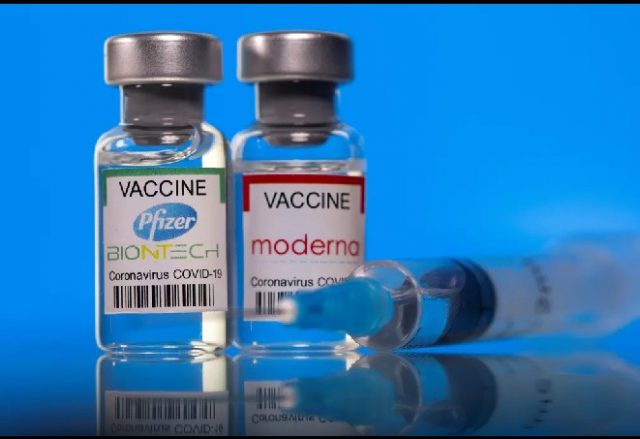04/25/2021, 12:26 PM, Photo: Disclosure.

After analyzing 35,691 pregnant women between the ages of 16 and 54, CDC scientists concluded that “the preliminary results showed no clear signs of safety among pregnant women who received the vaccines.”
“ In addition to vaccination that protects women from Covid-19 and its complications during pregnancy, evidence has shown that antibodies to Sars-CoV-2 are transferred from the placenta after vaccination during the third trimester of pregnancy, indicating that vaccinating the mother can provide a certain level of protection. For newborns, “the researchers evaluate.
However, they considered that they had no data on antibody transport and level of protection with respect to timing of vaccination. Additionally, they stated that monitoring over time is necessary to learn more about maternal, pregnancy, and infant outcomes.
Women were vaccinated from December 2020 to February 28, 2021. Of the 35,691 participants, 30,887 women, equivalent to 86.5%, were pregnant upon receiving the vaccination. The other 4,804 tested positive for pregnancy after vaccination.
About half of the participants received the Pfizer vaccine (19252) and the other half the Moderna (16,439) vaccine.
Injection site pain has been reported more frequently in pregnant women than in non-pregnant women, after both doses of both vaccines. This was also the most common symptom reported after vaccination (understand study methodology and details of results below).
Cytological monitoring – The CDC has created a post-vaccination surveillance system called “V-safe” to monitor adverse reactions and health status of people who have been vaccinated – not just pregnant women – for 12 months after receiving their last dose of the vaccine. The system works by cell phone and registration is voluntary. Data is collected through online surveys.
During the first week after vaccination with any dose of the Covid vaccine, participants are asked to report signs and symptoms at the injection site and other parts of the body in daily questionnaires, categorizing them as mild, moderate, or severe.
If, at any point, they indicate that they need medical help, participants are referred to a second monitoring system, which is monitored over the phone.
In the case of the study with pregnant women, out of 35,000 identified by “V-Safe”, 3,958 were registered for a second pregnancy record specified in the system. Of these, 3,719 were health professionals, equivalent to 94%.
See details of the results:
Among the registered pregnant women, 2,136 vaccines received from Pfizer (54%) and 1,822 from Moderna (46%).
Of the 3,958 women, only 827 recorded complete pregnancy data.
Of the 827 women with complete data, 104 women lost their pregnancies by 20 weeks (half of the pregnancy). A woman gave birth to a stillborn baby after the 20th week.
In the other 10 pregnancies, there was an induced miscarriage or an ectopic pregnancy (the so-called ectopic pregnancy – this type of pregnancy is not viable and needs to be terminated, which is threatening the woman’s life).
Of the 636 women who were vaccinated before the third trimester, 60 had a premature birth.
Of the 724 babies born alive, 23 were born infants of childbearing age; 16 they had birth defects.
Among the participants who reported birth defects in their babies, none received the Covid-19 vaccine in the first trimester or close to pregnancy, and no specific pattern of birth defects was observed.
No newborn baby died.
The researchers compared the data above with the incidence of these events in the general population. The proportions are not directly comparable, because factors such as age, race, etc. do not match between the vaccinated women and the general population: 79% of those vaccinated were white and non-Hispanic.
Additionally, the scientists indicated that only 14.7% of women who said they were pregnant on “V-safe” had been contacted to complete a pregnancy record.
Although the research is limited, the scientists concluded that pregnancy and newborn outcomes for women in the study were similar to research conducted before the pandemic.
Vaccines – Moderna and Pfizer vaccines share the fact that they use messenger RNA technology to stimulate the body’s immune response. Both are used in the USA, but are not yet available in Brazil.
In all, 89 million people have already been fully vaccinated in the United States, according to the Centers for Disease Control and Prevention. In Brazil, this number is 11 million.
Source: G1

“Wannabe internet buff. Future teen idol. Hardcore zombie guru. Gamer. Avid creator. Entrepreneur. Bacon ninja.”

